Is Rice Farming Still Shaping The Way People Think?
Published in Social Sciences, Agricultural & Food Science, and Behavioural Sciences & Psychology
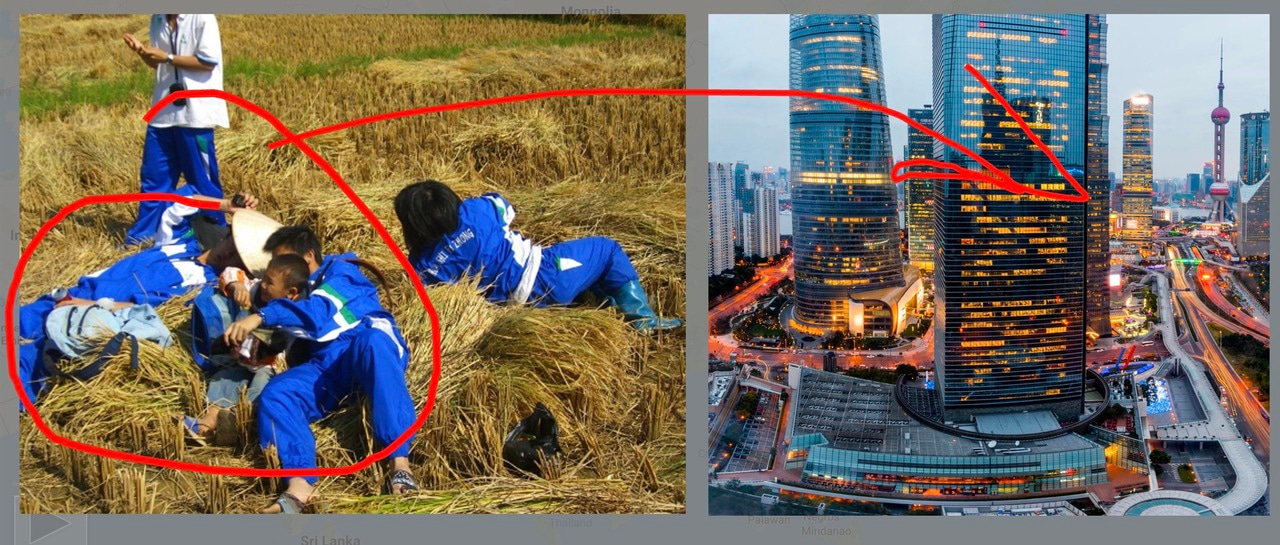
People in China have been putting down their plows in the last few decades. Fewer people are farming than ever recorded in modern statistics, but new data suggests that young people in China are still learning to think like rice farmers, even in modern mega cities like Shanghai.
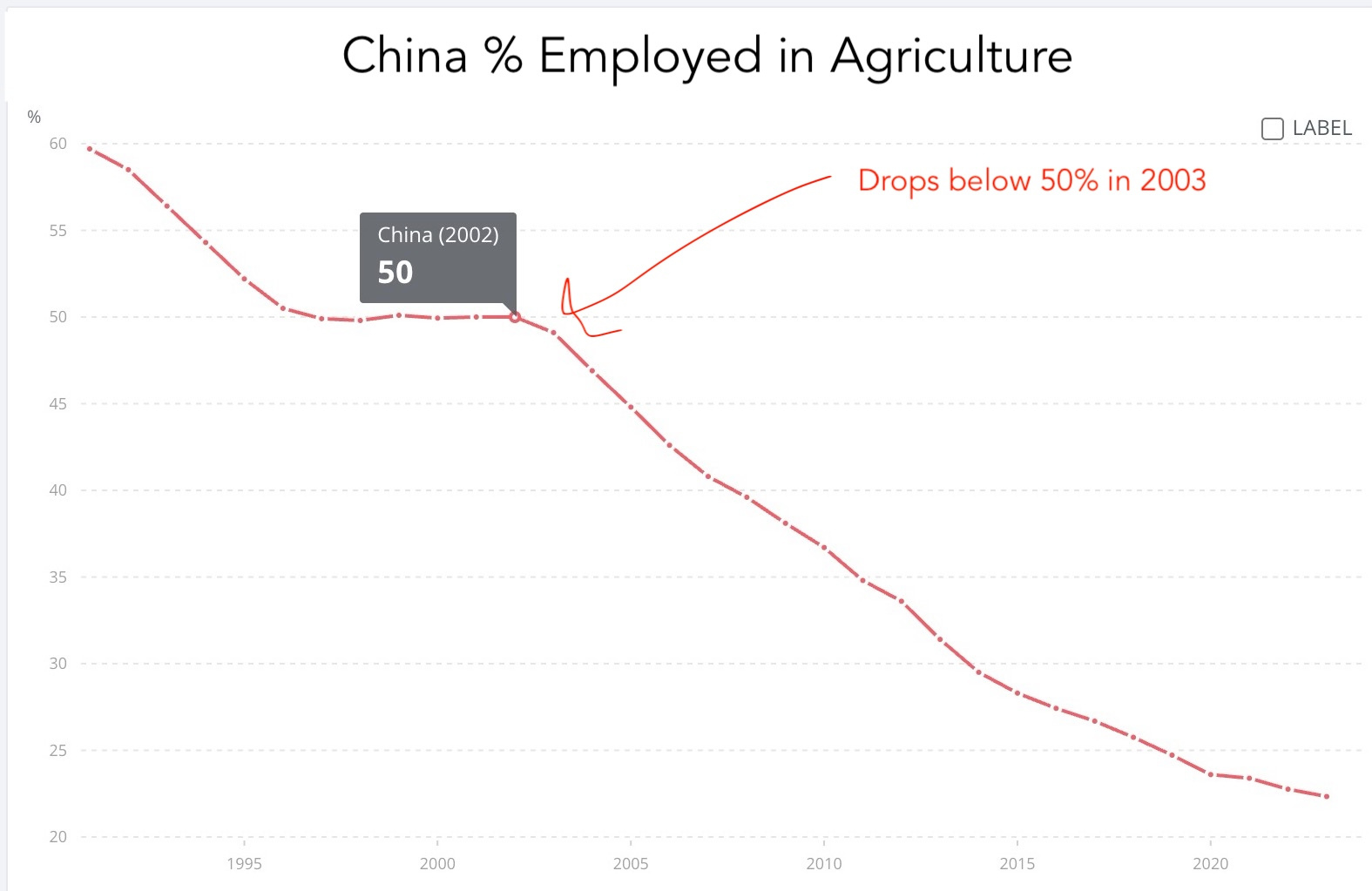
With a large team of researchers, my co-authors and I tested about 1,400 students’ cognitive style as they moved to college across China. We were interested in what happens when people change environments, so we tested students as they moved across China for college.
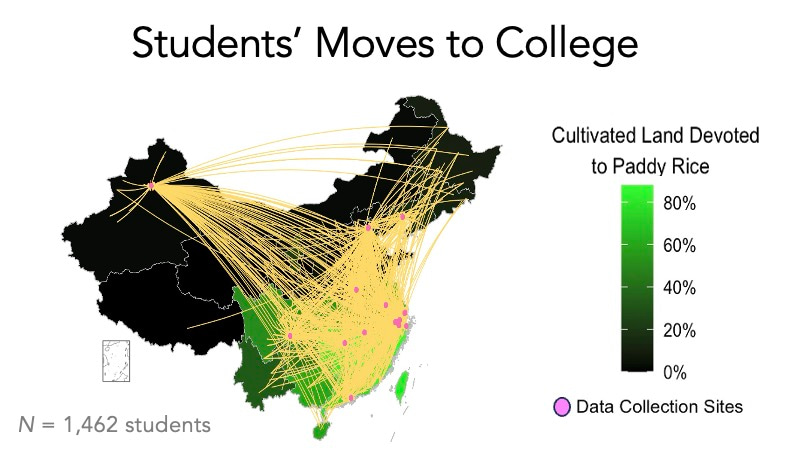
We gave students a test of cultural thought style right when they arrived at college (~August). Then we tested them again at the end of their first semester (~January) and a final time three years later.
We gave them a categorization task that’s been used a ton to measure cultural differences. Participants see three objects and choose two to categorize together.

People in individualistic, Western cultures tend to choose the abstract, categorical pairings. People in collectivistic, non-Western cultures tend to choose the relational pairings. Researchers call that relational pattern of thinking, "holistic thought."
We wanted to know how people's thought style changes when they move to a new environment. For example, do people who move from rural areas to big cities like Beijing and Shanghai think more like Westerners?
That’s what most people think! We asked 188 psychology students and professors to guess what we’d find, and they predicted that people moving to big cities would think much less relationally (-28%).

But the actual data showed no change in people's thought style after moving to big cities.
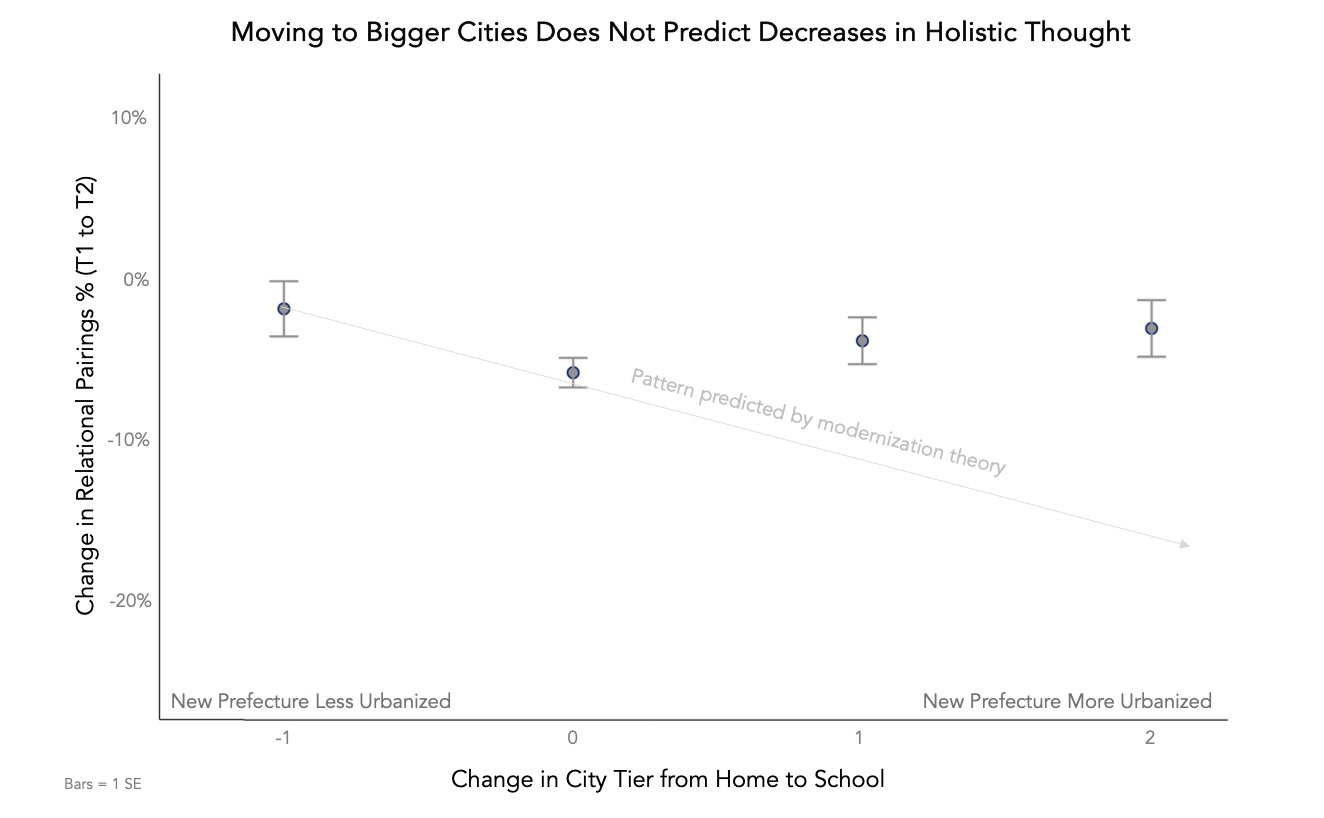
We also asked people about economic development, which we measured using GDP per capita. Our guessers predicted that people who moved to wealthier areas would think less holistically over time.

But again, the data showed nothing. If anything, there was a slight trend in the opposite direction. Students moving to wealthier areas tended to think more holistically over time than other students.
Why would that be? Well, China’s rice-farming regions are a little wealthier on average than wheat-farming areas.
On measures that cultural psychologists use to measure differences, northern China is more individualistic, whereas southern China is more interdependent, emphasizing close relationships. These differences map onto the north's history of farming wheat and the south's history of farming rice, which required more coordination.

That raises the possibility that the reason the results for wealth are in the opposite direction of people's predictions is because it's correlated with rice farming. And that's what the data showed. What did explain the changes in people’s thought style was whether they moved to a historically rice-farming area (like Shanghai) or wheat-farming area (like Beijing).
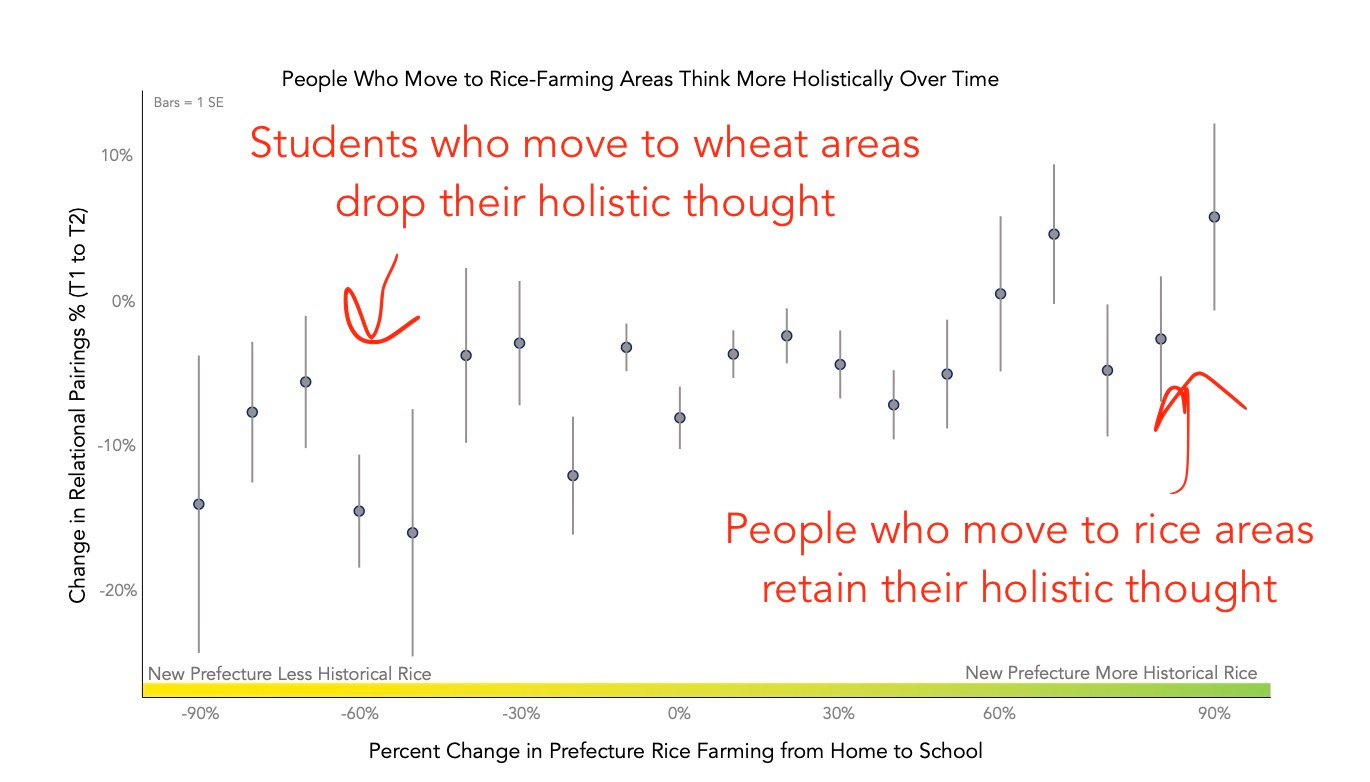
The psychologists did not guess this on average. In other words, researchers predicted changes based on urbanization and wealth, rather than these more "hidden" farming histories.
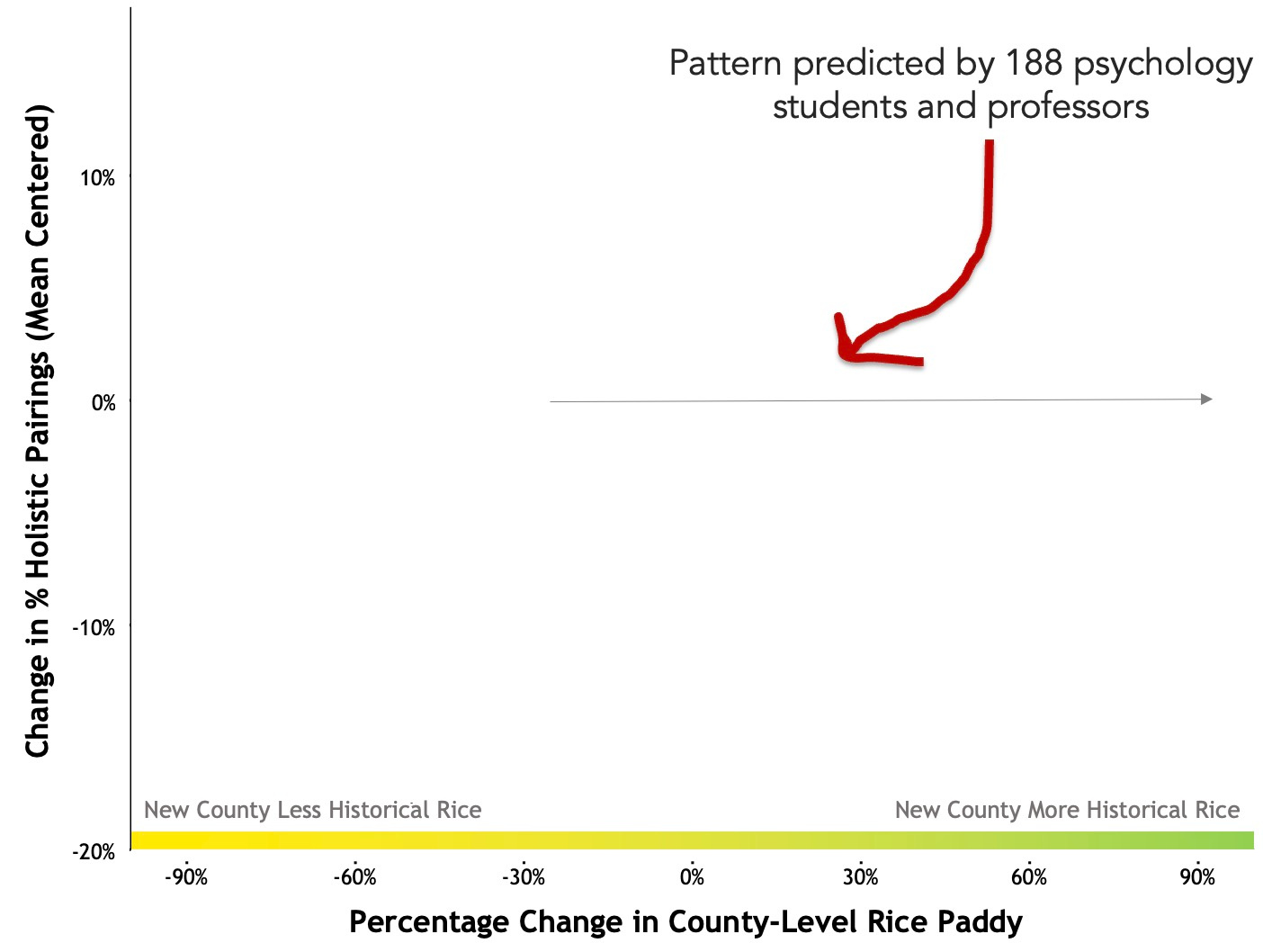
The changes continued through year 3, although the change came fast in the beginning and slowed down over time.

This data is fascinating for theories of cultural change. The results suggest that young people in China are still learning cultural legacies rooted in ancient farming. That’s despite the fact that students aren’t actually farming rice or wheat.

Instead, cultural differences are living on through other mechanisms, perhaps through how relationships are structured, how people teach, and simply fitting in with the people who are already living there. For example, newcomers’ thought style became more correlated with locals’ over time.
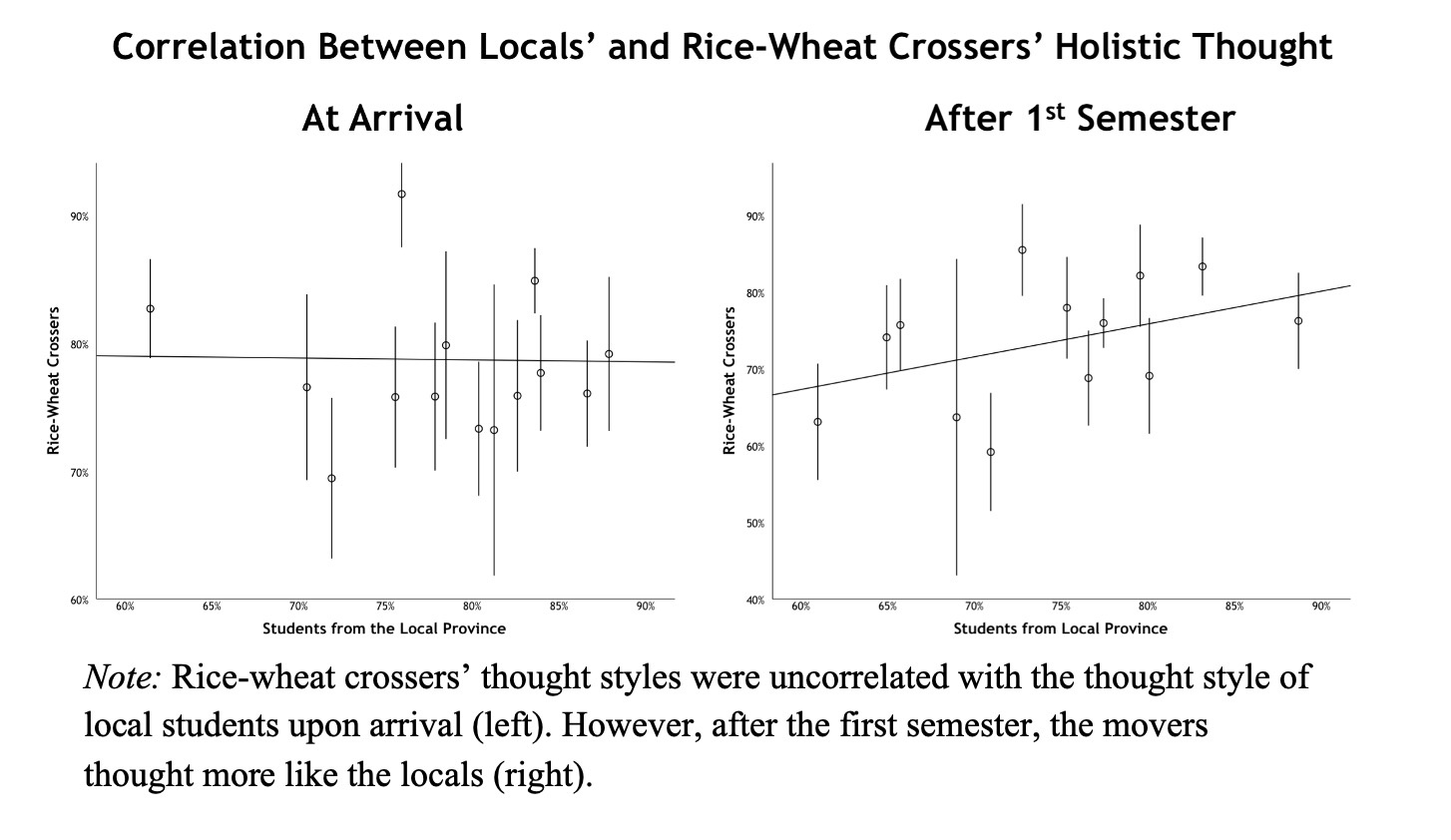
This data also gives some hope against the worry that the world is losing cultural diversity in the face of modernization. Instead, it suggests that young people are still picking up culture. And in my research, those cultural differences are often larger in the big cities.

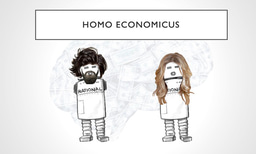



Please sign in or register for FREE
If you are a registered user on Research Communities by Springer Nature, please sign in
The full paper is available without a paywall at SSRN: https://papers.ssrn.com/sol3/papers.cfm?abstract_id=5537598
Thanks to the many researchers who worked on this project. 👏 @Alex English organized this massive data collection. @Liuqing Wei and @Rongtian worked hard too. And many other researchers too!
This kind of large-scale and long-term longitudinal study is rare in psychological research.